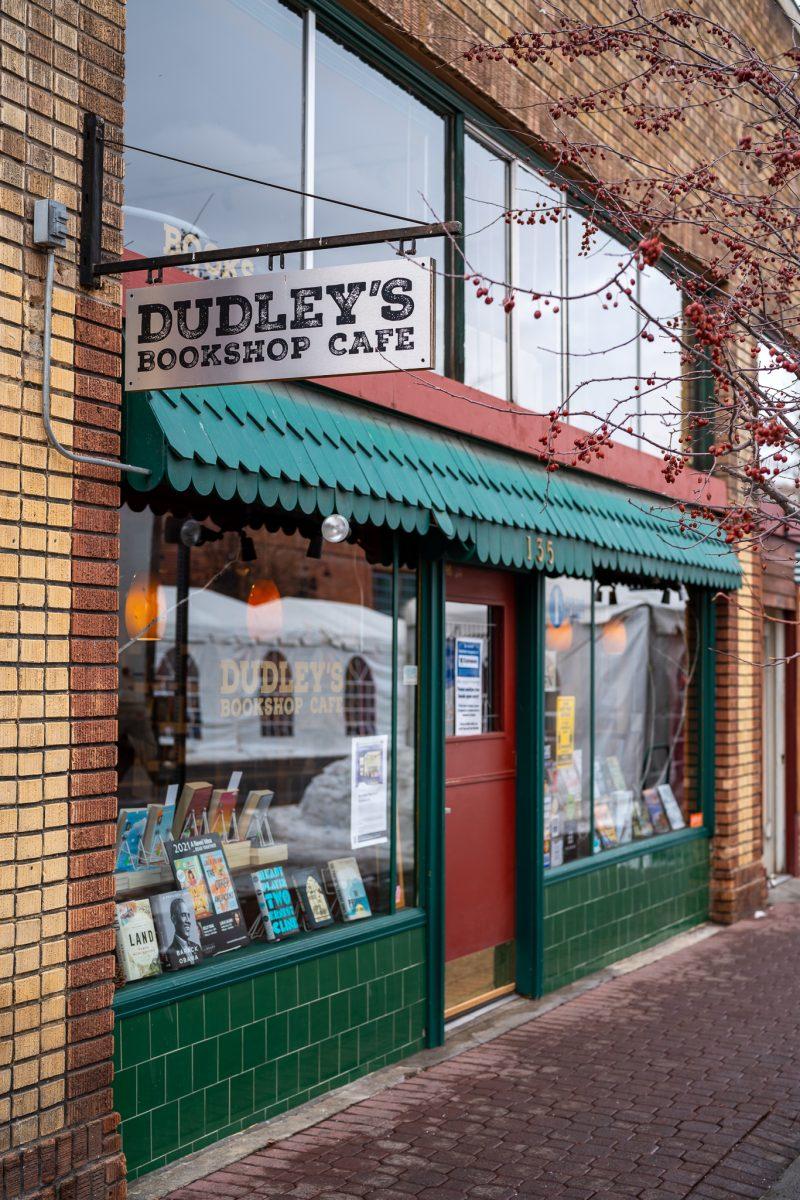Miina McCown/The Broadside
Whether it’s during a worldwide pandemic or not, starting, funding or organizing your own small business can prove to be a tough job. The Small Business Development Center at Central Oregon Community College is here to help business owners in Central Oregon, providing expert business advice through workshops and other courses. The SBDC aims to help clients write detailed business plans, seek funding, articulate plans for marketing and so much more that goes into the many aspects of developing and funding small businesses.
The SBDC provides advising meant for a variety of specific business types, including small business, construction business, beverage industry business and manufacturing business. Since 2010, the center has counseled over 2,000 clients and helped start over 100 new businesses, with a relatively small group of advisors serving a large portion of Central Oregon. Dudley’s Bookshop Café located in downtown Bend, along with many other locations throughout the entire Central Oregon area has been created, funded or organized with the help of the SBDC.
Kenneth Betschart, the director of the SBDC caught up with The Broadside about how the center helps small businesses and what it’s like to make such a big difference in Central Oregon.
The Broadside: How long has the SBDC been serving Bend and how does it serve small businesses in general?
Kenneth Betschart: I know it’s been more than 25 years that we have been providing services for Central Oregon. We like to think that our organization supports the business all throughout the life cycle. So whether it be, “I have an idea and I want to start a business,” or “I want to grow my business” or “I want to wind it down”… that whole phase from beginning to end [is what] we help businesses through… We help them through all of that from the financing side of it to the HR side to the accounting side, you name it.
TB: How does advising for different business types such as construction business and beverage industry business differ?
KB: We have a number of people on staff and they are all concentrated on geographic areas… COCC covers a large number of square miles so we have our individuals grouped up that way. In addition, they have specialties for what their background is. For instance, for José Balcazar has restaurant experience; he’s owned two restaurants as well as is a native of Mexico, so he works with the Latino community quite a bit and offers help in restaurants.
We’ve got a big footprint as far north as Madras, as far south as Crescent, as far west as Sisters and as far east as Mitchell. So [it’s a] big footprint and we want to make sure we can help businesses in every one of those areas, not just certain industries ether. We’ll help farmers, restaurants, retail, you name a business, and we can help in some way.
What we find is that businesses are very passionate about their services or the product that they make but they don’t necessarily know all the other disciplines of running a business… they may need help on how to market it or how to get finances for it.
TB: As the director, what are the most difficult and rewarding parts of your job?
KB: I think the most difficult thing is convincing businesses to utilize us. In Central Oregon, there’s about 8000 small businesses. Last year we saw about 500, so obviously, we could have seen more, but they have to be willing to step forward and do the work. And our courses are not free, but our advising is. We have individuals who have spent 25-30 years managing their own businesses or working in the corporate area so they can give back to the community by taking knowledge they have and working with businesses on a one-on-one basis.
Certainly, the most rewarding part of my job is reading about the businesses’ successes in the news, and get to go, “Hey we worked with them, they’re our client”…We don’t celebrate in their success but we see it from afar and when we see the news stories and read the articles about how they’re doing, we know that we played an important role in the background.
TB: What have been the struggles the SBDC has faced during the pandemic?
KB: Well, much like a lot of other departments of the college, we’re not meeting in person, which our advising is also done through Zoom… which is difficult in that many businesses are doing conferences face-to-face, yet because we’re under the college umbrella and under college policies, we don’t. So business staff continues to meet in person, of course following the guidelines, but we at the college are not able to meet with them.
TB: Over the years have there been a lot of student-run businesses or are they mostly not people attending COCC?
KB: They may have taken courses at COCC over the years, but we don’t see a lot of current COCC students coming over to take courses with the SBDC. And that’s probably why you don’t see or hear a lot about us… It’s not a natural progression to go from the college side over to the SBDC side. You take your knowledge, you start working in an industry and then you decide, “I’d like to start my own business.” Then you come back to the SBDC.









